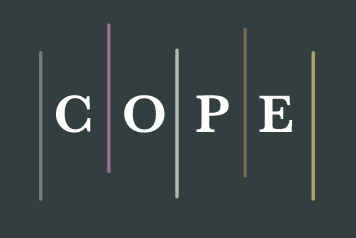The Modalization and Evolution of Human Intellect (Cognitive Systems): Following in the Prophets' Footsteps
DOI:
https://doi.org/10.58355/maqolat.v3i2.142Keywords:
Modalization, Intellection, Prophets, Intuition, CognitionAbstract
Because the sacred texts, encompassing the Qur'an and the Testaments, offer paramount insights into the realization of human excellence and given the Qur'an's authenticity and its complementary nature to preceding scriptures, our study delves into discerning verses from the Qur'an, consulting the perspectives of philosophers and thinkers, and delving into the narratives of divine prophets – who exemplify perfected intellects. The Quran's timeless relevance and universal messages have influenced the development of human intellect across diverse cultures and civilizations. By examining the profound lessons and moral values conveyed through these stories, we can gain a deeper understanding of the perfection of human intellect and its enduring relevance in today's world. Through this exploration, we unveil a sequential progression in the development of human cognition, consisting of distinct phases: Sensory Perception, Apprehension, imaginalization, intellection, and Intuition. As we meticulously examine the accounts of the prophets as recounted from Adam to the seal of prophethood, it becomes evident that these cognitive and intellectual stages have been manifested in the world through these divine messengers. Much like the narratives of the prophets within the Qur'an, human intellects must initially contend with apprehensions, then transition away from their hold, and subsequently engage in a battle against these apprehensions at the opportune moment, triumphing over them. This iterative process enables the intellect to reach its zenith of refinement and perfection, guided by the teachings of the prophets and the constructive, regulatory counsel of these profoundly sanctified and inherently sublime beings, ultimately progressing toward the state of Intuition. The fundamental objective of our inquiry lies in exploring the advancement of human intellect by emulating the archetypal portrayals of the divine prophets found in the Qur'an.
Downloads
References
The Holy Quran
Ashtiani, Seyed Jalaluddin. 2001. Zad al-Masfar. 3rd ed. Qom: Bostan Kitab.
Ebrahimi Dinani, Gholamhossein. 2012. The Essential Movement of the Infrastructure of the Unity of Being. Collection of articles from the commemoration conference of Hakim Sadrul Matallehin.
Ibn Fars. 1983. Dictionary of Comparisons. Research and recording by Abdussalam Mohammad Haroun. Beirut: Dar al-Fekr Publications.
Ibn Arabi. The Meccan Opening. 2nd and 4th vol. Beirut: Dar Sader Publishing House.
Eckhart, Meister. 1941. "Dialogue Between Islam and Christianity from the Point of View of Ibn Arabi and Eckhart." In Nameh ye-Mofid 1381, no. 34.
Fazel, Mohammad Taghi. 1995. "The Concept of Religious Reason." Scientific Research of the District, no. 3 and 4. See also Nameh Farhang Magazine, no. 12.
Tabeie, Ziauddin, Molavi, Parviz, and Kagaziyan, Hooman. 2016. Biological Foundations. Tehran: Publications of Hayan Abba Saleh Cultural Institute.
Tabei, Ziauddin, Molavi, Parviz, and Kaghazian, Hooman. 2007. Biological Foundations. Tehran: Hayan Abasaleh Cultural Institute.
Javadi Amoli, Abdullah. 2010. The Promised Imam Mahdi Exists. Edited by Mohammad Hassan Mokhbar's research. 1st ed. Qom: Isra Publications.
Javadi Amoli, Abdullah. 2019. The Biography of the Prophets in the Qur'an. Thematic Tafsir of the Holy Qur'an. Research and arrangement of Hojjat al-Islam Ali Islami, vol. 6. Qom: Esra Publications.
Javadi Amoli, Abdullah. 2010. Tasnim, vol. 20 and vol. 12. Qom: Esra Publications.
Javadi Amoli, Abdullah. 2021. Prophets' Lives in the Qur'an. Thematic Interpretation of the Holy Qur'an. Research and preparation of Hojjat al-Islam Ali Islami, vol. 6. Qom: Isra Publications.
Javadi Amoli, Abdullah. 2017. Imamate. Qom: Esra Publications.
Javadi Amoli, Abdullah. 2011. The Politeness of Fanai Muqarraban. Vol. 3 and Vol. 9. Qom: Esra Publications.
Javadi Amoli, Abdullah. 2009. Prophet of Mercy. Qom: Esra Publications.
Javadi Amoli, Abdullah. 2015. Truth and Miracles. Qom: Esra Publications.
Hassanzadeh Amoli, Hassan. 1999. Mamd al-Humam fe Sharh Fofus al-Hekam: A Commentary on the Bezels of Wisdom. 1st ed. Tehran: Ministry of Guidance.
Ragheb Esfahani, Abulqasem Hossein bin Muhammad. 1995. Marvels of the Qur’an to the Qur'an. Research by Safwan Adnan Davoudi. Damascus: Dar al-Qalam Publications.
Sadr al-Din, Muhammad bin Ibrahim. 2004. Al-Hikma al-Muttaaliyyah in al-Asfar al-Uqli al-Araba, vol. 3.
Sadr al-Din, Muhammad bin Ibrahim. 1975. Al-Hikma al-Muttaaliyyah fi al-Asfar al-Aqliyyah al-Arbaeh. Beirut: Dar Ihya al-Tarath.
Sadr al-Din, Muhammad bin Ibrahim. 1981. Asfar, vol. 1. Beirut: Dar Ihya al-Tarath.
Tabatabaei, Mohammad Hossein. 1996. Al-Mizan in Tafsir al-Qur'an. 5th ed., vols. 4 and 7. Qom: Islamic Publications Office of the Qom Theological Seminary Society.
Alam Al-Hoda, Jamila. 2010. Islamic Theory of Education. Tehran: Imam Sadegh University Press.
Alam Al-Hoda, Jamila. 2019. Explaining the Basics and Developing a Growth Model Based on Islamic Teachings. Secretariat of the Supreme Council of the Cultural Revolution.
Qanei, Mustafa. 2012. Climbing to the Heights of Science with the Methodology of the Ego. Tehran: Specialized Media Publications.
Kulayni, Muhammad bin Yaqub. 1986. Al-Kafi. Researcher and proofreader: Ali Akbar Ghafari, Mohammad Akhundi. 4th ed., vol. 1. Tehran: Dar al-Kutb al-Islamiyeh.
Kitchener. 1983. Quoted in Lapsley, 2010. See Alam al-Hadi. 2017. Explaining the Basics and Developing a Growth Model Based on Islamic Teachings.
Lippman, Matthew, and Saeed Naji. 2008. "Philosophy for Children and Teenagers: A New Approach in the Philosophy of Education." Farhang Quarterly. Tehran: Special Philosophy for Children and Teenagers: 22.
Motahhari, Morteza. 1991. Lessons in Healing Theology. 1st ed., vol. 2. Tehran: Hekmat Publications.
Naraghian, Mino. 2012. Semantics of Mind and Heart in the Quran. Tehran: Islamic Culture Publishing Office.
Watt, Montgomery. 1999. The Influence of Islam on Medieval Europe. Translated by Abdul Mohammadi. Tehran: Imam Khomeini Educational and Research Institute (RA).
Whitbourne, Susan Krauss. 2012. "Life Span Development." New York, NY: American Psychological Association.
Downloads
Published
How to Cite
Issue
Section
License
Copyright (c) 2025 Fatemeh Khiveh, Omid Asemani, Sedigheh Ebrahimi, Seyed Ziaeddin Tabei , MD, Farokh Bahram, Sekaleshfar, MD

This work is licensed under a Creative Commons Attribution 4.0 International License.






















